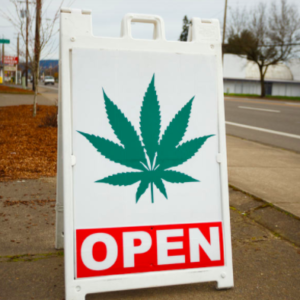Some have said 2020 was the year for cannabis reform. Fortunately, the momentum has carried through 2021 and looks to continue in 2022. Congress has paid attention and there are multiple federal proposals from both sides of the political aisle that would remove cannabis from the federal Controlled Substances Act, which currently classifies cannabis as a Schedule I drug. This is the most restrictive classification and is defined as having a high potential for abuse and no medicinal value.
Three federal bills at the moment offer comprehensive cannabis reform. In addition to removing cannabis from federal drug scheduling, the proposals would implement regulations on manufacturing and sales, as well as enable financial institutions to provide services to legitimate cannabis businesses. Further, each proposal would impose a federal excise tax, to varying degrees.
Currently, the reintroduced Marijuana Opportunity Reinvestment and Expungement (MORE) Act from Rep. Jerry Nadler (D-N.Y.) would impose a five percent tax on retail cannabis sales that would increase to eight percent after three years. Sens. Chuck Schumer (D-N.Y.), Cory Booker (D-N.J.), and Ron Wyden (D-Oreg.) have unveiled a “discussion draft” of the Cannabis Administration and Opportunity Act which would impose a 10 percent tax on cannabis products which would increase to 25 percent over five years. Finally, Rep. Nancy Mace (R-S.C.) has recently introduced the States Reform Act that would impose a three percent tax rate that would remain unchanged.
Federal legislation is long overdue. As of September, 47 states have legalized some form of cannabis – from cannabidiol (CBD) and hemp to recreational adult cannabis use. As mentioned, 2020 was a big year for cannabis. Two states (Illinois and Vermont) legalized sales through their state legislatures and every single cannabis reform measure during the November 2020 election passed, including measures in Arizona, Montana, New Jersey, and South Dakota, all of which legalized recreational marijuana.
How the federal government regulates and taxes cannabis products will equally impact states regardless of their state cannabis laws. Arguably, the tax imposed at the federal level may be more important than the regulations themselves.
States and the federal government are attempting to introduce legal, regulated products where a thriving black market for these products already exists. In 2019, it was estimated there was $70 billion in illegal cannabis sales in the U.S. In order to effectively compete, governments must impose competitive tax rates – if they’re to impose a tax at all.
The adverse effects of high taxes can already be seen in states with recreational marijuana sales. States such as California and Illinois impose steep taxes on recreational marijuana. It’s estimated that in California, the illegal market is worth $8 billion annually, which is “twice the volume of legal sales.” In Illinois, prices for legal cannabis products are “higher than every other state.” Due to the costs, the illegal market is said to be over $4 billion and still lucrative to drug dealers. According to one marijuana dealer that was operating in Chicago, they were able to raise their own prices after the Prairie State legalized recreational sales.
Competing with the black market could not come at a more opportune time for both states and the federal government. Prior to the ongoing COVID-19 pandemic, the United States was hit with a spat of vaping-related lung injuries that were overwhelmingly caused by black market vapor products containing tetrahydrocannabinol (THC) – the psychoactive ingredient in marijuana.
In December 2019, the Centers for Disease Control and Prevention found that among patients diagnosed with a vaping-related lung injury, 80 percent reported using THC-containing vapor products. Of those using THC vapes, over half (56 percent) had indicated they had used the product brand “Dank Vapes.” Even before the lung injury spat, Dank Vapes products were associated with adverse effects. In July 2019, a Wisconsin man was hospitalized after using a Dank Vapes product containing THC. Federal proposals to regulate cannabis can help deter the use of black-market products including Dank Vapes.
Federal cannabis regulation is long overdue as states navigate through a myriad of local cannabis laws. But federal legislation must take into account the existing market and be competitive. Any federal proposal must not overtax cannabis in order to effectively compete and dominate the future U.S. cannabis market.


